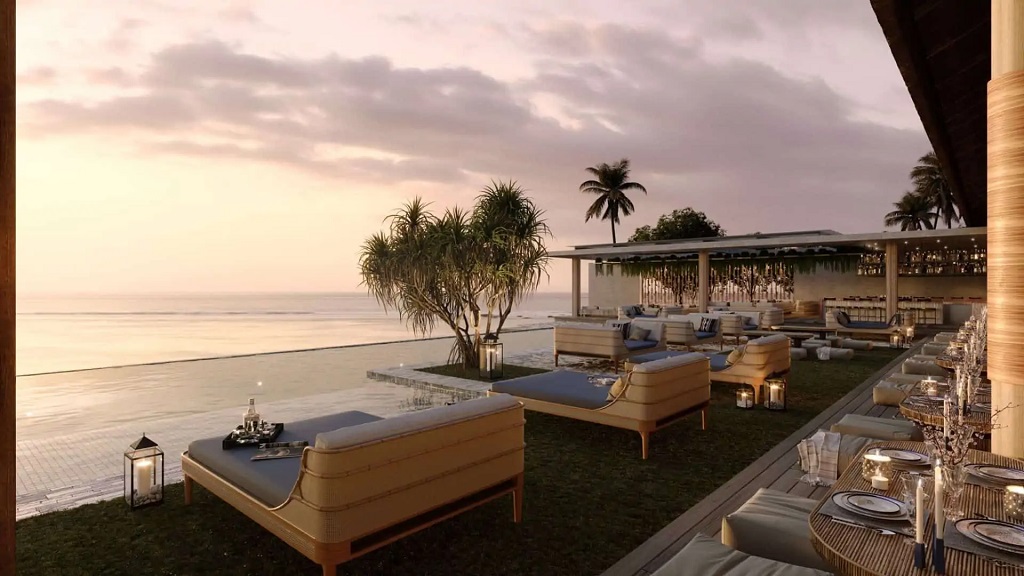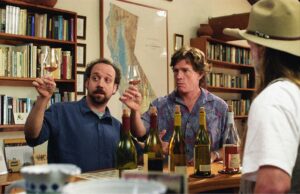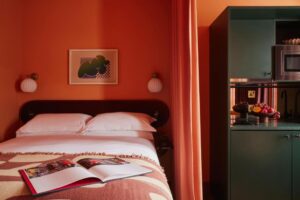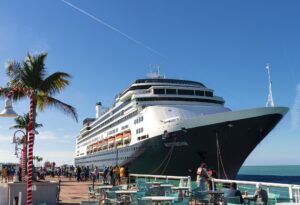Cap Karoso: A Mindful Retreat in Sumba, Indonesia
26th April 2023
9 min. read
1580

Cap Karoso, which gets its name from the Karoso beach where it’s situated and is surrounded by towering cliffs, blue lagoons with coral reefs, and Sumbanese homes with soaring 25-meter-high roofs, is a retreat where authentic travel, community, and mindful travel come together. The resort, which debuted last month, combines traditional pavilions, ikat-woven textiles, and locally manufactured crafts with modernist structures, world-class cuisine, and contemporary Indonesian art. Everything pays respect to the island of Sumba, though through a decidedly modern lens, from the roomy villas and informal and fine-dining restaurants to the sizable on-site farm.
In order to open a hotel on Sumba, an Indonesian island in the southeast where centuries-old custom and heritage are meticulously kept, Originals Fabrice and Evguenia Ivara first sought local advice and held a ceremony for 600 islanders to receive ancestral blessings. Many natives in this area practice the ancient Bronze Age religion known as Marapu, and the daily lives of these people are shown in local artwork, megalithic graves, and traditional uma mbatangu homes with 25-meter-high roofs.
The villagers blessed the Ivaras after seeing their dedication to respecting and cooperating with the island’s history and communities. And now, the couple has launched Cap Karoso, a stunning beachfront property in the area of Ate Dalo that not only pays homage to the island’s people, cultures, and traditions, but also consciously incorporates them into every aspect of its operations and philosophy. This is done while also giving the resort a distinct French flair rooted in the couple’s own Parisian lineage.
“When my husband and I first visited Sumba in 2017, we fell in love with the island and got this idea of creating a place for like-minded travelers, where the wildness and authenticity of Sumba would encounter the sophistication of a certain lifestyle that we both enjoy,” Evguenia says.
“Now, reflecting on this journey, which has lasted six years, what I see the most is the story of human encounters and co-creation,” she continues. “During the work on Cap Karoso, we have crossed paths with a range of incredible professionals, from designers to farmers, from a Sumbanese ikat-weaver to a French perfume-maker. Each of them brought a part of their soul into this project—and this is what the journey was always supposed to be.”
The resort’s architecture, designed by Gary Fell of GFAB Architects, pays modern homage to heritage. At the heart of the footprint, five buildings designed to resemble a Sumbanese village are blended with clean lines and contemporary simplicity. The interior design idea by Jakarta-based Bitte Design Studio, which combines modern aesthetics with objects made using traditional craft methods by local artisans, complements Fell’s approach to the structures. The greeting and lobby area includes a cotton wall hanging fashioned by master weaver Kornelis Ndapakamang from Sumbanese cotton, travertine blocks that are replicas of Sumbanese megaliths, and custom teak and rattan furniture made from Indonesian resources. The hotel’s Beach Club also features geometric wooden pillars by Kalpa Taru Bali and colorful handmade tiles by Gaya Ceramic.
47 rooms and suites as well as 20 villas have unique objects adorning them. Here, shelves hold hand-carved statues manufactured by artisans in the nearby villages, and walls are decorated with artwork by modern Indonesian and international artists, including Alexander Sebastianus, Yuki Nakayama, and Ines Katamso. Beyond the artwork, each room is an example of indoor-outdoor living, with some having private decks with lounging areas and others having open-air soaking baths. The two- and three-bedroom villas, which offer the most amount of isolation within the expansive property, are furnished with private infinity pools and open-air kitchens with Kamado grill burners. With hand-carved wooden headboards that feature geometric patterns from Sumba ikats and additional custom furniture made of locally sourced rattan, bamboo, and teak, guests are kept in touch with the neighborhood in every room. Along with tables by designer Sarah Ellison and textiles by Pierre Frey, terrazzo, polished concrete, and natural plaster restore a harmonious feeling of contemporaneity. Gerard Gatti, a Grasse-based perfumer, created a personalized room aroma and bath amenities, and Cabas bags created by sustainable luxury brand Stelar are also provided in each room for visitors to use while staying there.
One of the resort’s three restaurants, the laid-back all-day Beach Club, is located next to the white sandy beach with Bitte Design Studio-designed daybeds made of wood and rattan. Here, family-style meals created with local ingredients and a zero-waste philosophy, such as whole grilled fish and homemade pasta, are served next to a kid-friendly pool under a traditional alang-alang thatched roof. The award-winning French mixologist Nico de Soto serves speciality cocktails at the bar Apicine, which is next to the lobby. De Soto traveled to Sumba to develop the drink menu at Apicine, concentrating on creating distinctive drinks made with regional ingredients. Along with his culinary inventions, Apicine also offers finger foods with Indo-Basque flavors and expansive horizon views that unfold at the end of a 33-meter infinity pool.
The lobby-adjacent Julang offers a high-end dining experience and frequently welcomes great chefs from around the world for takeovers. This is another example of Cap Karoso’s dedication to cooperation. Famous chef Mehdi Kebboul, who perfected his trade in some of the most famous Michelin-starred kitchens in the world, is currently residing there. Under his direction, patrons can anticipate a menu that builds on French culinary traditions while also examining the distinctiveness of Sumbanese ingredients. Chef Katsu Okiyama of the Michelin-starred Parisian restaurant Abri will take over after Kebboul’s stint concludes. Julang’s cuisine prioritizes locally sourced ingredients to provide unique and unforgettable culinary delights that are presented to no more than 20 guests each evening sat around the shared chef’s table, even if the chefs may change.
Executive Chef Antoine LeVacon, who received his training at Michelin-starred restaurants in France and the US, is in charge of the idea regardless of where diners decide to eat. His meticulous attention to detail results in dishes that are flavorful and made almost entirely from regional and organic produce, the majority of which is supplied from the on-site Cap Karoso Farm. Philippe Guiglionda, an expert in organic farming, established this three-acre biological farm as a working estate where a variety of vegetables, fruits, and herbs are grown, including cabai (Samba chilis), papayas, cabbages, and mangoes. While buffalo graze on open fields and eggs are collected from a chicken coop, seafood is bought directly from fishermen when the boats arrive with their morning catches.
Cap Karoso Farm provides food for the restaurants as well as the thoughts of residents and visitors of all ages. An artist-in-residence program, craft studios, and some Little Adventurers Club programs for kids aged 3- to 12-years-old are located on the farm. While young visitors explore the night sky with an astronomy teacher or gain gardening skills at the children’s club, adults can take part in agricultural activities centered around composting and the creation of natural fertilizer. A training course in biological farming, permaculture, and sustainable landscaping is available here as well for local farmers.
After getting their hands dirty, visitors may relax and unwind in the Malala spa, which is housed in a traditional Sumbanese home with a peaked roof similar to the uma mbatangu buildings in the nearby village. The therapies at the spa are developed from shamanic healing rituals that use wild island herbs, flowers like hibiscus, sea salts, and singing bowls. This goes beyond the resort’s outward appearance and reflects the culture of the area. Daily yoga and meditation classes are also offered at the yoga pavilion, on the beach, and atop the cliffs.
Cap Karoso was purposefully built with the neighborhood and community in mind. According to Evguenia: “With Cap Karoso, we found our own recipe for developing a meaningful connection to the locality, and a major aspect of this connection was employing local talent in an environment where their unique background and their knowledge of the local culture are truly treasured.”
Cap Karoso collaborated with a group of Kodi locals to better understand the neighboring villages and their values in order to create engaging cultural activities for visitors and to support the sustainable growth of the local community. In addition, Cap Karoso employed former employees of the non-profit Sumba Hospitality Foundation, allowing young talent to remain on their island rather than seeking employment elsewhere.
With Cap Karoso Farm, the resort also offers a variety of programs to local farmers and young people so they may learn skills they can use to their own property. The farm offers courses where interested residents can learn about plant propagation, nursery skills, plant care, garden upkeep, as well as fundamental health and safety in and around the garden. The farm also holds a training program in biological farming and permaculture.
Additionally, the landscape was designed to restore the land and lessen the need for air conditioning, and plastic packaging is prohibited throughout the property. The property also gets at least 50% of its energy from an on-site solar panel park. Removing non-native weed species, carefully choosing plants with water conservation in mind, and constructing an eco-friendly water treatment system are some steps that can be taken to protect the delicate surrounding landscape and to rehabilitate damaged regions. Green roofs are also installed on villas and bungalows, and the hotel’s own buffaloes create natural fertilizer.
Southeast Indonesian island of Sumba has a meticulously preserved culture and history. Here, local tribes adhere to Marapu traditions that date to the Bronze Age, resulting in the coexistence of megalithic tombs and towering peaked-roof homes called uma mbatangu. The rhythms of sacred rituals and the advice of Ratos, or local shamans, guide village life. A relatively unexplored region that is home to unspoilt white sandy beaches, crystal-clear waterways, verdant hills, and rolling green rice paddies—all of which are home to a variety of indigenous species—backdrops this distinct culture.
A few scattered traditional communities and kilometers of untamed beach surround Cap Karoso, which is situated in the uncharted Kodi region of West Sumba. Interacting with local people, taking part in traditional fishing excursions, horseback riding, and workshops for ikat weaving and natural dyeing all allow visitors to get a sense of the long-preserved culture.
Cap Karoso is located 40 minutes’ drive from Tambolaka Airport on Sumba, which is reached after a 50-minute flight from Bali.
Photo credit to https://www.theluxevoyager.com/luxe-hotels/indonesia/cap-karoso-sumba/

Ian Robinson
Westhoughton, Bolton, Greater Manchester
Exclusive Travel Holidays
0161 327 1707
ian@exclusivetravel.holiday
Specialist Area:
Cruise, Weddings and Honeymoon, All Inclusive, City Breaks, Cycling, Diving and Snorkeling, Hiking, Safari
View ProfileRelated Articles
Related News
Related Offers
SIGN UP FOR OUR MAILING LIST
Enter your email address and receive daily or weekly updates with the latest articles, news and videos.Copyright © 2021 Experienced Travellers Ltd. Experienced Travellers Ltd is not responsible for the content of external sites. Read about our approach external linking.



















